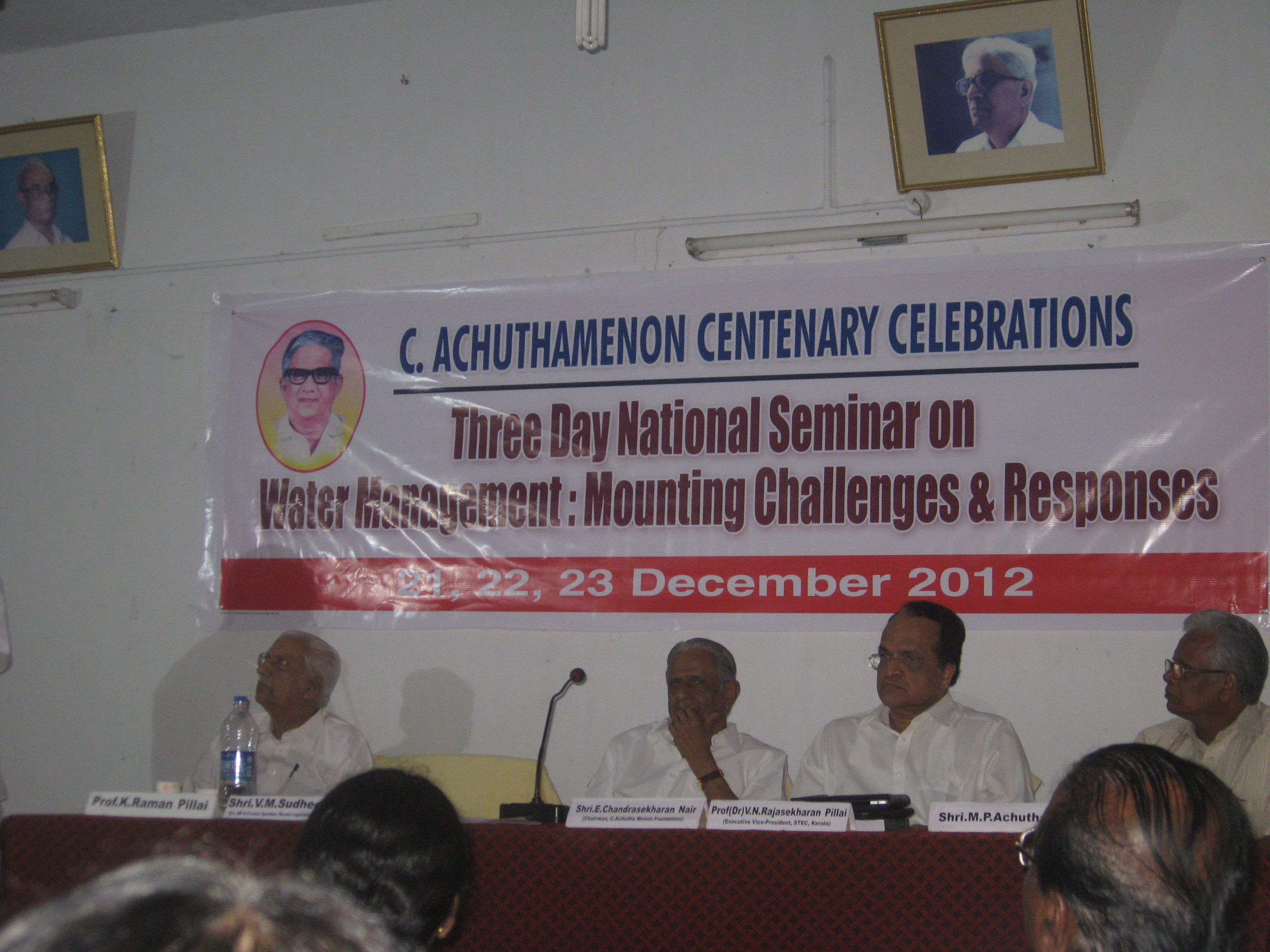Irrigation
The Karamana River in Kerala – once revered but now shunned
Posted on 23 Apr, 2013 08:26 AMPeople warned to stay away from river

Why participatory groundwater management is no longer an oxymoron: The story of Randullabad
Posted on 15 Apr, 2013 06:04 PMIndia is heavily dependent on groundwater use. Domestic use, agriculture and industry all rely on groundwater extracted by means of pumps, wells and tanks. This dependence is illustrated by falling groundwater levels. Frequently, this overuse and consequent decline trigger conflicts.

Reviving dying springs in Sikkim
Posted on 28 Mar, 2013 11:48 AMPure and beautiful, mountain springs confer lives. With change in climate conditions and rainfall patterns, rural habitations in Sikkim face drinking water shortages. Many of these springs are drying up or their discharge declining. But there is hope at the end of an endeavour, where science, government and community come together to revive springs of their local region.

Expanding access to improved water sources through watercredit - A report on the stakeholders engagement forum, organised by water.org, New Delhi,19th February 2013
Posted on 22 Mar, 2013 09:33 PMUday Shankar from water.org welcomed the audience and introduced the issue of access to safe water and sanitation. Gary White, water.org, set the tone of the seminar by explaining his organisation’s vision of ‘getting safe water’ for everyone.

Sweet smell of success: Human waste fertilises land & turns farmers wealthy in Bangalore
Posted on 17 Mar, 2013 05:07 PMHuman excreta is loaded with nutrients, which when disposed off discriminately, increases pollution and leads to a loss of resources. On an average a human being produces some 500 litres of urine and 50 kilograms of faeces a year, sufficient to fertilise plants that would produce more than 200 kilograms of cereals!
Accelerated Irrigation Benefits Programme given near-exclusive priority in 12th five year plan, but will it solve India’s water problems?
Posted on 16 Mar, 2013 09:04 PMThere is a palpable sense of a looming water crisis in India. Conflicts across competing users and uses are on the rise. In the irrigation sector, it is widely felt that “paucity of resources and poor performance of existing major and medium irrigation systems are the two main problems”(1).

Water management - Mounting challenges and responses - A report on the three day seminar jointly organised by KSCSTE and C Achutha Menon Foundation, Trivandrum from the 21st to the 23rd December 2012
Posted on 14 Mar, 2013 10:12 PMThis three day national seminar was jointly organised by the Kerala State Council for Science, Technology and Environment (KSCSTE), Thiruvananthapuram, and the C Achutha Menon Foundation (AMF), Thiruvananthapuram, Kerala and included presentations and discussions on a range of water related themes such as water scarcity, water conservation, commercialisation of water, water conflicts and water management.
The seminar aimed at creating awareness and triggering a dialogue among scientists, academicians, researchers, activists, as well as lay people on the emerging challenges related to water resources, water quality and water conservation in the state of Kerala. The seminar was inaugurated by Shri V M Sudheeran, Ex MP and former speaker, while Dr Rajasekaran Pillai, Executive Vice President KSCSTE, delivered the keynote address with the felicitation by Shri M P Achuthan, MP.
The seminar included discussions under five different themes related to water issues that included water scarcity, water conservation, commercialisation of water, water as an new area for conflicts and water management.

The three day seminar on water management at the Achuta Menon Foundation, Trivandrum, Kerala
How do groundwater irrigation and energy supply influence each other ? - Talks from the IWMI-Tata Annual Partners' Meet held at Anand in November 2012
Posted on 10 Mar, 2013 01:03 PMIndia is the world's largest consumer of groundwater where it is extensively used for irrigation. However, there is a considerable waste of this valuable resource. While a part of this waste can be attributed to a lack of incentive for conservation, unmetered electricity supply contributes greatly to this problem. This has led to the formation of what is being termed an energy-irrigation nexus.
Several sessions at the IWMI-Tata Annual Partners' Meet in 2012 discussed this phenomenon, its causes, impact and possible management strategies.
Need for an ecologically sound agricultural system - A video interview with Ardhendu S Chatterjee
Posted on 07 Mar, 2013 05:22 PMIndian agriculture has changed. From earlier a lifestyle to now livelihood, our farming has journeyed through revolutions. Food production increased but so did the problems of depleting soil fertility and rising debt. The green is fading and an evolution is now sought.
Some strategies for managing groundwater by Aditi Mukherji, IWMI
Posted on 22 Feb, 2013 09:53 AMGroundwater is essential for India's agricutural economy. However, there is a large variation in the groundwater resources of each region. Some regions are already over-exploited, while others can still tolerate more withdrawal. In her blog 'Waterscapes', Aditi Mukherji discusses the need for regional strategies to manage groundwater economy.





